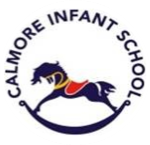Science
The Science curriculum at Calmore - Intent
At Calmore infant school, our science teaching builds the foundations for understanding the world through the specific disciplines of biology, chemistry and physics.
Science has changed our lives and is vital to learn more about the world we live in. All pupils should be taught essential aspects of the knowledge, methods, processes and uses of science.
Our Science curriculum aims for the children to develop, apply and embed the knowledge learned, building on what they already know and can do by knowing more and remembering more.
Through building up a body of key foundational knowledge and concepts, pupils should be encouraged to recognise the power of rational explanation and develop a sense of excitement and curiosity about natural phenomena. They should be encouraged to understand how science can be used to explain what is occurring, predict how things will behave, and analyse causes. In order to prepare for a rapidly changing world
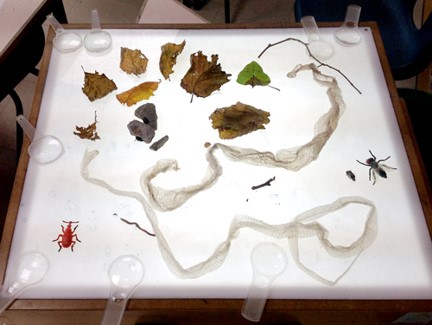
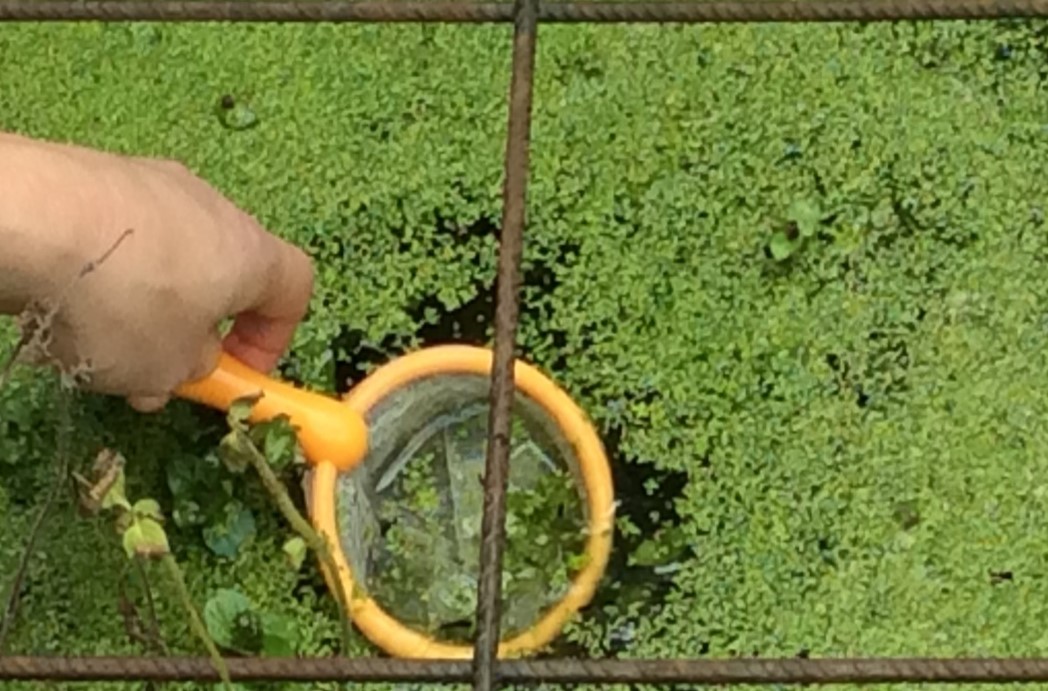
National Curriculum in Science
Aims: The national curriculum for Science aims to ensure that all pupils:
Develop scientific knowledge and conceptual understanding through the specific disciplines of biology, chemistry and physics.
Develop understanding of the nature, processes and methods of science through different types of science enquiries that help them to answer scientific questions about the world around them.
Are equipped with the scientific knowledge required to understand the uses and implications of science, today and for the future.
Children will be taught about:
The principal focus of science teaching in key stage 1 is to enable pupils to experience and observe phenomena, looking more closely at the natural and humanly-constructed world around them. They should be encouraged to be curious and ask questions about what they notice.
Children should be helped to develop their understanding of scientific ideas by developing their substantive and disciplinary knowledge. Through the use of different types of scientific enquiry to answer their own questions, observe changes over a period of time, noticing patterns, grouping and classifying, carrying out simple comparative tests, and finding things out using secondary sources of information.
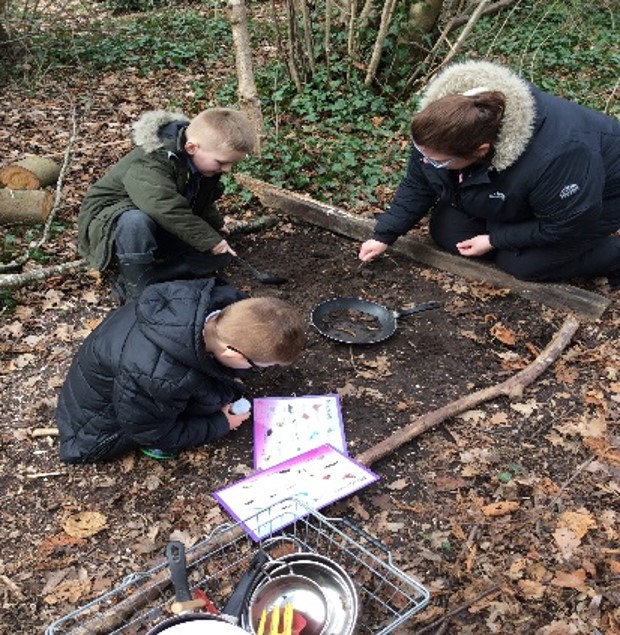
They should begin to use simple scientific vocabulary to talk about what they have found out and communicate their ideas in a variety of ways. Most of the learning about science should be done through the use of first-hand practical experiences, but there should also be some use of appropriate secondary sources, such as books, photographs and videos.
Disciplinary knowledge
Alongside all the problem-solving areas and activities science encompasses, disciplinary skills need to be taught, revisited and identified. This is to ensure there is consistency and a focus on the skills that need to be taught in order to ensure better progression of the working scientifically aspects of science. The statements allows explicit areas taught to be tracked to ensure they are explicitly taught and help create the independence within the class.
During years 1 and 2, pupils should be taught and assessed to use the following practical scientific methods, processes and skills through the teaching of the Hampshire learning journeys. Disciplinary knowledge areas explicitly taught and assessed:
- observing closely, using simple equipment
- performing simple tests
- identifying and classifying
- using their observations and ideas to suggest answers to questions
- gathering and recording data to help in answering questions
- Using their observations and ideas to suggest answers to questions
- Gathering and recording data to help in answering questions
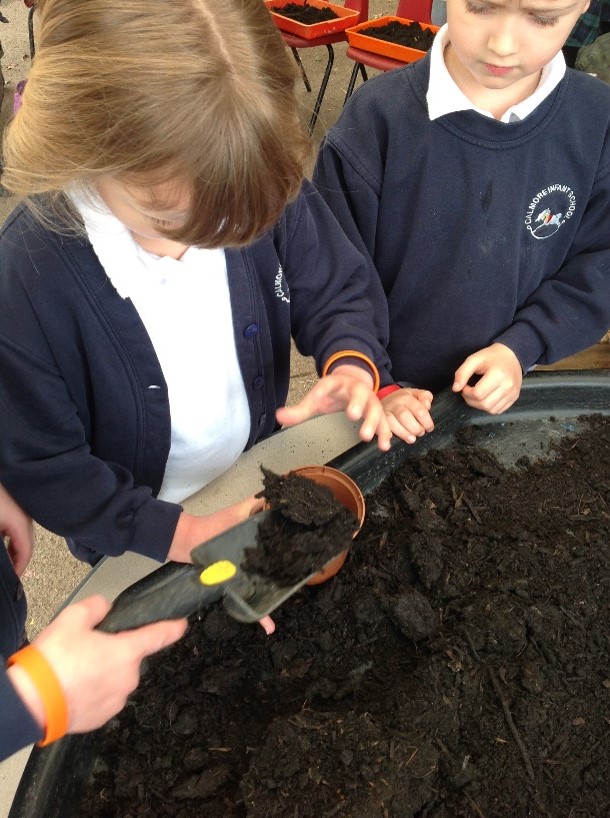
Foundation stage – working scientifically
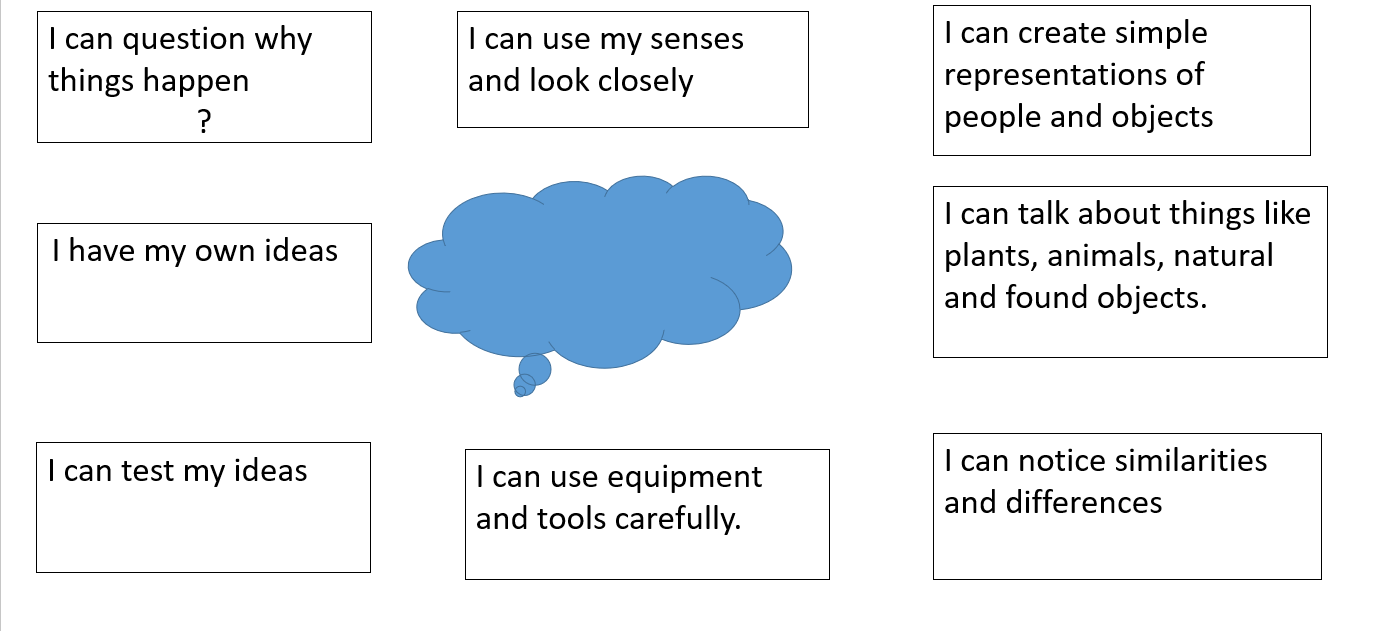
What science looks like across the school
In the Foundation Stage, the children will learn about the similarities and difference in relation to objects, materials and living things. They will learn to make observations of animals and plants and explain why some things occur and talk about changes.
The Foundation Stage deliver science content through the ‘Understanding of the World’ strand of the EYFS curriculum. This involves guiding children to make sense of their physical world and their community through opportunities to explore, observe and find out about people, places, technology and the environment.
‘Forest Fridays’ ensure children get hands on with nature and exploring the world around them.
Planning and assessment will be guided by the EYFS Statutory Educational Programmes and Development Matters (see Development Matters document for details)
